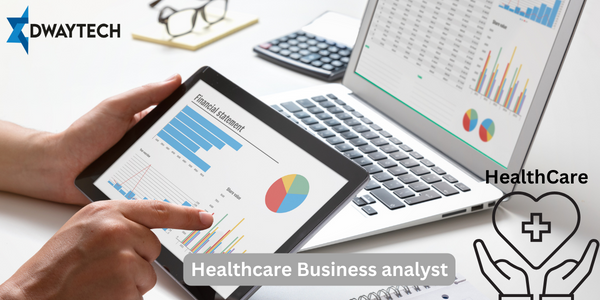Introduction
In the Complicated world of healthcare, the role of a Business Analyst plays a crucial part in ensuring the efficiency and effectiveness of operations. Their responsibilities span a wide range of tasks that contribute to the smooth functioning of healthcare organizations.
Let’s Search into the world of Healthcare Business Analysts and explore their key roles and responsibilities.
Key Responsibilities of a Healthcare Business Analyst
1. Data Analysis and Interpretation
- Analyzing complex healthcare data to identify trends, patterns, and insights
- Interpreting data to provide actionable recommendations for decision-making
- Making use of data visualization tools to deliver information in an understandable and efficient way
2. Process Improvement
- Identifying inefficiencies in healthcare processes and workflows
- Working together with stakeholders to improve efficiency and streamline processes
- Implementing process improvement initiatives to optimize resource utilization
3. System Integration and Implementation
- Working closely with IT teams to ensure seamless integration of new systems and technologies
- Providing input on system requirements and functionalities to meet business needs
- Overseeing the implementation of new solutions and conducting user training sessions
4. Regulatory Compliance
- keeping an eye on and guaranteeing adherence to healthcare laws and guidelines
- Conducting audits to assess adherence to regulatory requirements
- creating and putting into practice compliance plans to reduce risks
5. Stakeholder Engagement
- Communicating effectively with healthcare professionals, IT teams, and other stakeholders
- Collaborating with cross-functional teams to gather requirements and drive initiatives
- Building strong relationships to foster trust and cooperation within the organization
Challenges Faced by Healthcare Business Analysts
Despite the rewarding nature of their work, healthcare business analysts encounter several challenges. Dealing with vast and complex data sets can be daunting, requiring sophisticated analytical techniques and tools. Moreover, balancing multiple projects simultaneously while adhering to tight deadlines demands impeccable time management skills and prioritization abilities.
Career Growth and Opportunities
For aspiring healthcare business analysts, the career path is ripe with opportunities for growth and advancement. With experience and expertise, analysts can specialize in areas such as healthcare informatics, data science, or business process optimization. Leadership roles, such as senior analyst or director of analytics, offer avenues for career progression and increased responsibility.
Conclusion
Healthcare Business Analysts play a pivotal role in driving efficiency, optimizing processes, and ensuring compliance in healthcare organizations. By harnessing their data analysis skills, process improvement expertise, and stakeholder engagement abilities, they contribute to the success and growth of healthcare systems. As the healthcare landscape continues to evolve, the role of Business Analysts will remain essential in navigating the complexities of the industry.
Remember, success in healthcare business analysis lies in unlocking the potential of data, processes, and people to drive positive outcomes for patients and providers alike.
“Data-driven decisions are the foundation of success in healthcare.”
FAQs
- What educational background is required to become a healthcare business analyst? A: While a degree in healthcare management, business administration, or a related field is beneficial, what matters most is a strong analytical aptitude and proficiency in data analysis tools.
- How can healthcare business analysts stay updated with regulatory changes? A: Subscribing to industry newsletters, attending compliance seminars, and participating in professional forums are effective ways to stay informed about regulatory updates.
- What are some common data analysis techniques used by healthcare business analysts? A: Healthcare business analysts often employ statistical analysis, data mining, predictive modeling, and visualization techniques to glean insights from healthcare data.
- Are certifications necessary for a career as a healthcare business analyst? A: While certifications such as Certified Business Analysis Professional (CBAP) or Project Management Professional (PMP) can enhance credibility, they are not mandatory. Practical experience and demonstrated skills are equally valued in the field.
- What career advancement opportunities are available for healthcare business analysts? A: Experienced analysts can progress to senior roles such as lead analyst, manager of analytics, or director of business intelligence, with opportunities to oversee larger projects and teams.
Also, Useful Links:
Business Analyst Training Course Online Request Demo











